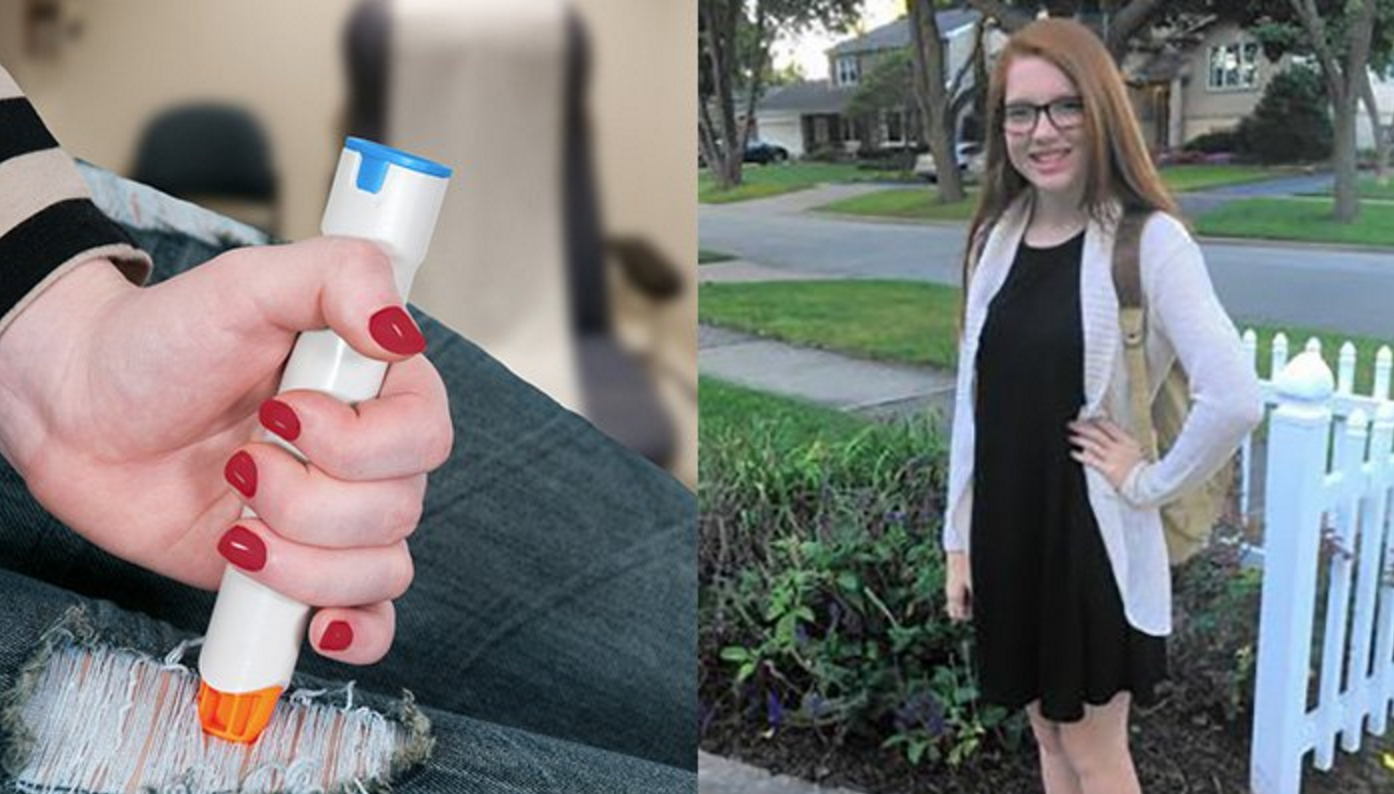A teen girl experienced a horrific event when her school nurse delayed her access to an EpiPen in the middle of a life-threatening allergic reaction. A trained medical professional elongated a terrifying experience for a child, and what’s worse is that no one can say why the nightmare happened.

Officials at Township High School District 214 have apologised and agreed to pay the medical bills for a John Hersey High School freshman with a life-threatening peanut allergy, after a school nurse allegedly delayed her from using an EpiPen earlier this month.
The teen had been inadvertently exposed to peanuts after eating a sandwich sold in the school cafeteria, according to her mother.
Arlington Heights residents Lonnie Joy and Shawn Sommer said they have asked the District 214 school board to review its policies and procedures related to student food allergies and medical practices, following the Aug. 30 incident involving their daughter Lia, 15. If exposed to peanuts, she requires epinephrine to avoid fatal consequences from anaphylaxis, or “a sudden and severe allergic reaction that may cause death,” according to the U.S. Centers for Disease Control.
According to Lonnie Joy Sommer, after the first bite of a turkey sandwich with pesto served in the Hersey cafeteria that day, Lia, who has dealt with the peanut allergy her entire life, knew immediately that she had been exposed to peanut contamination.
Sommer said her daughter headed to the Hersey nurse’s office, accompanied by a friend, where the nurse on staff allegedly advised Lia to take an antihistamine, Benadryl, Sommer said in a letter she read aloud to the Township High School District 214 Board of Education at a Thursday night meeting.

“Lia refused, knowing from previous experience that her symptoms would be masked by the antihistamine, though the anaphylactic reaction would not be halted, and would continue to silently and dangerously escalate undetected,” Sommer said. “Instead of following Lia’s Allergy and Anaphylaxis Plan on file in the health office, which clearly states, ‘Give EpiPen First!’ the nurse opted to have her call me to confirm before administering epinephrine, with my daughter’s life held in the balance.”
According to Sommer, after speaking with her daughter on the phone, she asked the nurse if epinephrine had been given and if 911 had been called. The nurse answered ‘no’ to both questions, she said.
“I was shocked that a trained medical professional was either unaware of the most up-to-date protocol for anaphylaxis, or unwilling to follow it,” Sommer said. “I told her administer the EpiPen and call 911 immediately. She said that it would be done, and confirmed I would meet the ambulance at Northwest Community Hospital.”
Sommer said she arrived at the Arlington Heights hospital before the ambulance, and was “astonished to find that no school representative had accompanied Lia to the ER.”
“It is ludicrous that a minor would be sent alone to a hospital during school hours with no personnel to represent her,” Sommer said. “I am horrified and saddened by the complete lack of common sense and compassion that predicated this decision.”
Officials at District 214 said Friday that they will be immediately reviewing their policies and procedures on allergies, food and medical treatment, and if any changes or training are determined necessary, “they will be enacted right away,” District 214 spokeswoman Jennifer Delgado said.
“The district sincerely apologizes for our mistakes,” Delgado said. “Student safety is always of the utmost importance, and we are working with the family to remedy the situation.”
The district will also compensate the family for their daughter’s medical bills pertaining to the incident, Delgado said.
The nurse involved in the incident, who is still employed with the district, was unavailable for comment.

While the Sommers have not filed a lawsuit against the school district, Lonnie Joy Sommer said the reason for appearing at this week’s board meeting was to bring the incident to the attention of district officials and to document “the ensuing incorrect responses from the health office, administrative offices, and all personnel involved.”
Describing her daughter as “a good student and a responsible kid,” Sommer said that during the first week of classes, Lia and a friend who also has a peanut allergy began to “self-advocate” by separately inquiring in the cafeteria about the safety of the food served there pertaining to peanut allergies.
According to Sommer, Lia was told that the Hersey lunchroom does not use peanuts, and that the Uncrustables brand of peanut butter and jelly sandwiches sold in the school cafeteria are pre-packaged, therefore posing no problem with cross-contamination.
“My daughter believed that, not unlike her lunchroom at Thomas Middle School, the school meals prepared in the Hersey cafeteria were safe for her consumption,” Sommer said. “She ordered a turkey sandwich and all was well.”
But the following week, Lia ordered a turkey sandwich once again, but this time with pesto. Sommer said that should have been safe because Lia is not allergic to pine nuts, which are typically used in most pesto spreads.
But Sommer said that on Sept. 2, she allegedly received a call from the high school, stating that peanuts had been substituted for pine nuts in the pesto spread.
“With the rampant nature of food allergies, all food service professionals should know that the last thing one should use as a ‘substitution’ ingredient is one of the eight major food allergens, Sommer said.
“A mere trace of peanut protein can cause a fatal reaction for my child, so discovering this was used as a main ingredient substitution had me thanking God Lia knew exactly what to do to stop the reaction,” she said.
Noting that she wrote her letter to the District 214 school board on Lia’s 15th birthday, Sommer added: “I shudder to think what kind of day this might have been.”
This story first appeared on Chicago Tribune.
